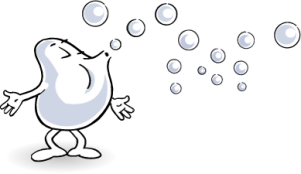Researchers' profiles

"The department's main purpose is to supply the Group's factories with yeast strains and manage collections of micro-organisms (bacteria, yeasts, filamentous fungi)..."
What are your everyday functions and missions?
I'm in charge of running the Microbiology/Strains department. This department is part of the Lesaffre Research and Development division. My day-to-day work consists in planning and coordinating a team of 6 technicians and a research framework to steer the various projects to fulfilment. The department's main purpose is to supply the Group's factories with yeast strains and manage collections of micro-organisms (bacteria, yeasts, filamentous fungi). At the same time, we conduct analytical appraisal in the field of microbiology for the Group. In particular, the team works on projects to improve methods, like, for instance, the detection and quantification of yeasts by flow cytometry. The team's expertise in the field of yeast and bacteria identification is also recognised within the Group as, for each new industrial strain, we tie in a genetic "identity card". The department is currently working on some fifty or so projects.
How did you train to become a researcher?
MSc in biochemistry at Lille university, specialising in cellular and molecular biology. I completed this with a postgraduate diploma (DESS) in molecular and cellular biology.
What qualities, in your opinion, are needed to be a researcher?
Curiosity! I also think that it requires an ability to analyse and summarise in order to exploit the mass of results generated by the department.
What do you like most about your job?
The most pleasant aspect is managing a team and leading it to develop its knowledge, work methods and organisation. Developing a department's expertise in the field of yeast microbiology is very motivating.

"Every day, we work on biomass production through cellular multiplication, that is to say techniques whereby we create 2 identical cells from one cell like yeast..."
Could you describe your day-to-day job?
My work consists in defining, planning and supervising fermentation tests. "Every day, we work on biomass production through cellular multiplication, that is to say techniques whereby we create 2 identical cells from one cell like yeast..." Our aim is to make sure that yeast receives all the nutritive elements needed for its growth so that it can multiply in the best possible conditions. I work with a technician and operator and, at the end of each fermentation, we appraise the test on the basis of the data collected. However, during fermentation, we can be required to modify the initial fermentation configuration if certain indicators (e.g. quantity of ethanol measured) hit the "danger level". Via the process, we can adjust the properties of the yeast produced. We can act in different ways like, for example, adjusting the composition of the culture medium, airing, reviewing the strategy regarding certain substrates or precursors, etc.
The work is usually done in small volumes (1 litre) then transposed to a larger scale (7 litres or 20 litres). When the results obtained in the lab are viable, the industrialisation pilot takes over to validate the first results and industrialise the production process. We are the last link before the industrial stage.
How did you train to do this job?
I obtained a DUT (technical university diploma) then continued in an Engineering School specialising in industrial microbiology. Once I had my engineering degree, I specialised in the Bioprocess sector with a thesis on the production of flavours by biotechnology in partnership with a Canadian scientific team.
What, in your opinion, are the main qualities to be a researcher?
Research consists of team work. It is important to be able to communicate and listen to others in order to outline the problems properly. Moreover, a researcher should always be looking "outwards" to keep in touch with the latest scientific breakthroughs. It is also necessary to be rigorous, methodical and creative to do our job well.
What do you like most about your job?
In Research, something unexpected will always pop up to spice up your everyday life. When we modify a process, we are impatient to find out if this adjustment allows us to achieve our objective or not. Following up a project from start to finish, from the lab bench to its introduction in an industrial plant is very motivating and gratifying for researchers like us. It is the concrete expression of our team work.

"Correctly handling, storing and enhancing the Group's yeast strain collections..."
What is your everyday work?
I have two main missions.
- The first consists in correctly handling, storing and enhancing the Group's yeast strain collections. These collections are Lesaffre's biological heritage, a source of development for our new products. With my team, this leads me to research and develop increasingly efficient storage, identification and performance monitoring methods in order to maintain the integral properties of strains and guarantee their performance. This also means that I need to keep myself informed of the different research work conducted within the group in order to be able to propose strains to be studied.
- Behind each yeast production, there is a test-tube of strain. Another mission is therefore to make sure, on a daily basis, that factories are regularly supplied with high quality strains.
How did you train to become a researcher today?
I trained as a biochemist but became specialised in genetics and molecular biology during my final year.
What, in your opinion, are the key qualities to become a researcher?
- Curiosity seems to be an essential quality as it is the basis of research work.
- Patience and rigour guarantee efficiency and quality of the work accomplished.
- The ability to challenge oneself and remain humble about one's discoveries.
- Being realistic: our research work needs to lead to useful and really applicable solutions.
What aspects do you like most about your job?
scientific and human enrichment I can gain from the different experiments and encounters I make as part of the responsibilities assigned to me.






